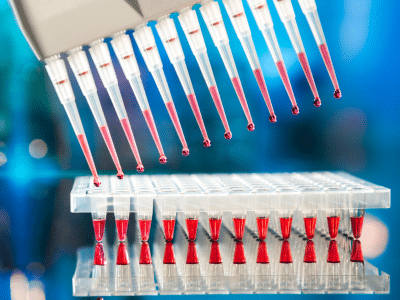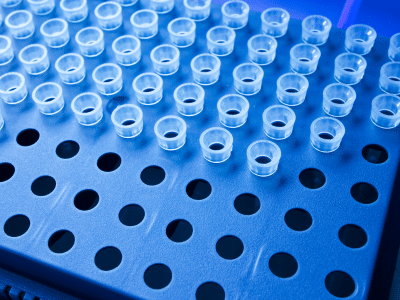The world of French biomedical laboratories has been in turmoil for the last few days. Their activity is often unknown to the general public, even if their use has exploded over the last 24 months. It is therefore appropriate to give a brief reminder of what medical biology represents in the French healthcare system. Biomedical laboratories are specialized institutions that work on diseases and problems related to the human body. They provide scientific knowledge to improve patient care. Today, nearly 3/4 of all medical diagnoses in France are based on the results of biological analyses.
What is the role of medical biomed laboratories?
Their activities are mainly focused on biomedical research, disease definition and diagnosis. In France, there are approximately 4100 private medical biology sites (70% of which are organized in groups) in France in 2021. These are essentially sampling sites. 700 technical platforms carry out the technical activity around the samples that are entrusted to them. There are about a thousand public hospital laboratories .The role of medical biology laboratories – a major player in the human and animal health chain – has increased even more in the last two years of the COVID 19 global pandemic.
Flexibility, reactivity, perfect control of a reliable and reproducible result, medical laboratories have reminded everyone of their crucial importance, close to the patients, to identify diseases and prevent epidemics – among others.
Medical biology laboratories also play a very significant role in the treatment of certain chronic diseases, essential in the treatment of bacterial infections, and unavoidable in the prevention of many cancers, and in in vitro fertilization.
Nearly 7,000 medical biologists and pharmacists, a little more than 3,000 medical biologists, and thousands of laboratory technicians in France are committed to providing quality patient care that enables physicians to make an accurate diagnosis and to initiate appropriate and targeted treatment. The medical biology laboratory is therefore at the heart of the population’s health care.
How do biomedical laboratories diagnose?
Medical biology laboratories diagnose in several stages.
The pre-analytical stage is the sampling of liquids (blood, urine), skin or mucous membranes, sperm, etc.), stools, etc. It is also the stage of preparation of the sample taken before it is analyzed. This stage is fundamental, as it is the one during which the greatest number of non-conformities can appear, which would deteriorate the quality of the result.
The analytical stage is the one that allows to obtain the result on which the diagnosis or the treatment is based. This stage has 3 requirements: it must allow a reliable and reproducible result to be obtained as quickly as possible. This phase is therefore largely robotized and automated. The extremely sophisticated machines now used are profoundly transforming medical biology. Indeed, artificial intelligence, and soon deep learning, big data, now allow a very enriched reading of the slides, imprints of an ionization by bombardment, counting and detection of colonies in particular.
Finally, the medical biologist interprets the analysis results and shares them with the clinician and the patient. This is the post analytical phase.
These three phases are governed by the international quality standard ISO 15189 and the medical biology laboratories are accredited by the COFRAC.
You are the essential link in the health care chain
Medical laboratories account for 2% of French healthcare expenditure and medical diagnosis depends on their activity.
Behind each test result that appears on a patient’s smartphone screen in a few hours, behind each clinician’s therapeutic decision, there are sampling technicians, laboratory technicians, investments in instrumentation and automation robots, and biologists who interpret the results of sample analyses.
laviedulabo.fr is the community that unites those who are dedicated to the reliability and repeatability of analytical results, and we have been committed, through LABELIANS for half a century, to listening to this community.




